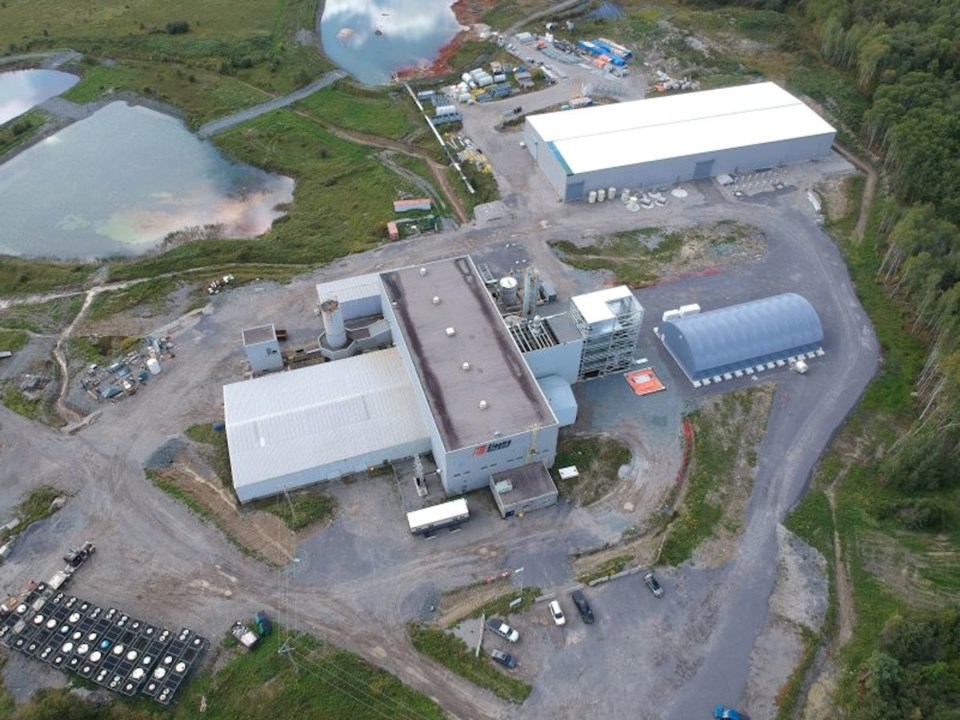There's a lot for Electra Battery Materials to like in the results of its battery recycling trials taking place at its Temiskaming refinery in northeastern Ontario.
CEO Trent Mell was crowing last week that the company’s ongoing ‘black mass’ trials “continue to exceed expectations,” especially when it comes to improving metal recoveries.
Since starting a pilot plant in December, the Toronto company has been fine-tuning a recycling process that extracts valuable metals from shredded lithium-ion batteries and converts them into a battery-grade material that's much coveted by electric vehicle manufacturers.
Other companies crush the spent batteries, remove the casings, and send the remaining mineralized material, called ‘black mass,’ to refiners like Electra.
Within this mix are elements like lithium, nickel, cobalt, manganese, copper and graphite, which can all be recycled to produce new lithium-ion batteries.
In claiming this is the first plant-scale recycling operation of its kind in North America, Electra said it's processed 40 tonnes of black mass to date.
The company reports its recovery rates for manganese have improved by more than 50 per cent from the results achieved in the lab. The metal content in a nickel-cobalt mixed product has increased 5 to 10 per cent since the start of the trial.
Electra has been making a nickel-cobalt hydroxide precipitate (MHP) product and has shipped off 20 tonnes of the stuff to customers.
Want to read more stories about business in the North? Subscribe to our newsletter.
Electra is running these trials at a demonstration plant scale, pushing out product in batches. Eventually, they’d like to scale to a higher volume commercial plant that runs continuously.
The company also mentioned they’ve reduced their reagent requirements in the process, which has cut costs and improved metal recovery.
These results, the company said, will help make the business case to do that at some point.
“In addition to the gains made to metal recoveries and reagent use, other changes, such as improving the washing of saleable residues in our filter press equipment and recycling internal water streams, have improved our overall efficiencies,” said Mark Trevisiol, the company’s vice president of project development.
“With our decision to continue processing black mass material in our goal to expand processing capacity, we now plan to further enhance our process and target battery-grade quality products.”
Battery recycling is one of the pillars Electra wants to build around for an eventual battery materials industrial park, including a cobalt refinery, located on an existing refinery site between Temiskaming Shores and Cobalt in northeastern Ontario.
The recycling operation is run out of the original refinery while construction has been taking place around it to enlarge the facility.
On the side, Electra is working on developing its own supply chain with a First Nations partner to ship black mass feed from southern Ontario to Temiskaming for recycling.
During August, Electra announced it was pausing construction in Temiskaming to conserve cash until a major industrial partner comes to the table.
Besides owning the refinery, Electra also holds cobalt and copper exploration in Idaho and plans to expand its refinery capacity to a second location in a fast-growing battery metals park in Becancour, Que.




